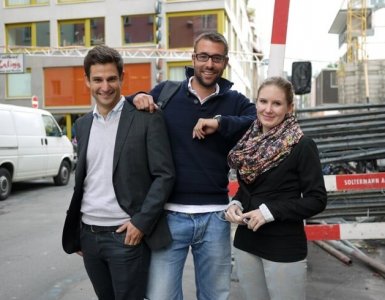"How much do you make?" is one question you should probably never ask a Swiss. According to my own experience (and backed by research), less than one percent likes to talk about their salary. But in the advent of the vote on the 1:12 initiative (it did not pass), a public debate has been sparked.
Aldi Suisse and Lidl are commonly known for inexpensive goods, and few would oppose a statement that they have rather lackluster working conditions. However, these discount retailers have now gone on record with a minimum salary of 4700 and 4000 francs respectively - even for unskilled laborers.
This aggressive publicity stunt was heard loud and clear among the Swiss. Remember, talking about one's salary is a taboo around here!
A minimum wage of 4000 francs is particularly hard to accept for the many young apprentices who have chosen the path of skilled labor. The latter is a very common practice in Switzerland. Right out of Instead of high school, they will enroll in a four-year apprenticeship program. Apart from learning a trade, they will attend school part time to acquire all the skills necessary for becoming masters of their trade.
Average monthly salaries in Zürich after a four year apprenticeship (multiply times 13 for annual salaries):
- Butcher: 4020 francs
- Electrician: 4200 francs
- Florist: 3700 francs
- Hairdresser: 3600 francs
- Kiosk rep: 3800 francs
- Optician (certified): 4760 francs
- Pharmacist: 3900 francs
Despite the pressure from discounters, the Swiss government continues to endorse the system of apprenticeships. Going through a rigorous program for no less than four years is a sustainable investment for any employee. Because a solid education and a set of valuable trade skills are the foundation of a successful career. Finally, compared to other countries which lack apprenticeships and thus have large unskilled workforces, Switzerland's model has allowed to maintain a low unemployment rate.
"So how much do you make?", you might wonder. Sorry, but I ain't telling...
(Photo copyright by Keystone)






The four year apprenticeship is NOT after high school, but INSTEAD OF high school, after 9 years of mandatory school for everyone. So after those four years, when they enter the market, they are the same age as people who graduated from High School.
Many thanks for the correction!
I know I’m really late, but that’s not true. The apprenticeship is after high school not instead, the only difference is that there are only 9 mandatory school years, so you start your apprenticeship at 16 instead of 18 as would be normal in North America.
Thanks for the feedback, Chris! According to government statistics, jobs in the tobbaco and finance industries pay the most. No surprise there…
As to why the Swiss don’t like to talk about salary, it is anyone’s guess. I think that the Swiss sense of privacy is why most people prefer to keep financial details to themselves. Additionally, people probably understand that by knowing what your coworkers earn might make them unhappy. But this thought might apply in any culture where salaries are taboo…
[…] See on http://www.newlyswissed.com […]
I don’t understand the pharmacist salary. I think that must be a pharmacy technician. Actual pharmacists have years of rigorous education.
I think asking salary is bad form in any country.
[…] What may sound absurd at first is a regular conversation topic among Swiss. I have heard it before, and maybe you have, too. The point is that the Swiss talk about money, but they do not talk about their salary. […]